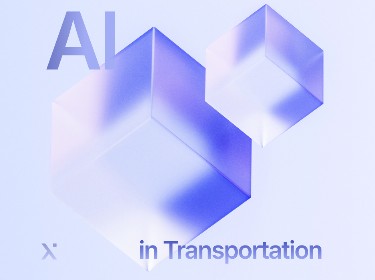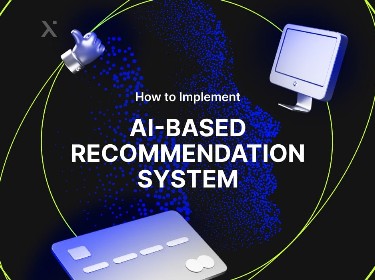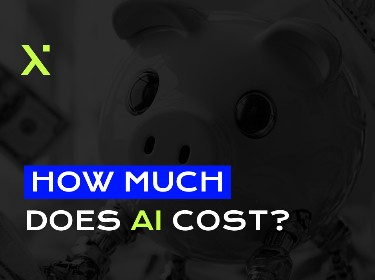The growing number of quantum computing applications is a powerful reminder that the technology is rapidly advancing toward commercial viability. But to what degree are businesses keeping pace, and what do these leaps ahead entail?
The quantum computing industry is estimated to grow at a CAGR of 33% between 2023 and 2035, reaching $50 billion compared to its $1.61 billion valuation in 2022. The North American industry share is projected to be the largest by 2035, at around 38%, attributed to the launch of advanced computers from major quantum computing companies such as IBM and Microsoft, alongside government initiatives.
Pursuing a share of that value, quantum technology startups saw investments reaching a whopping $2.35 billion for quantum computing applications, including companies in quantum computing, communications, and sensing.
The market growth can thus be attributed to the increasing demand for advanced computing capabilities and the potential economic impact across various industries.
Let’s take a closer look at this technology and learn more about its applications across multiple sectors.
What is quantum computing?
Quantum computing is a rapidly emerging technology that enables entirely new realms of computing by solving specific problems much faster than classical computers. But let’s break this down a bit for a clearer picture.
Quantum computers use qubits, which can simultaneously exist in several states of 1 and 0, a phenomenon known as “superposition,” in contrast to classical computers, which store information in bits that can only be either 1 or 0. Through a process called “entanglement,” qubits can also affect one another even when they are not physically connected.
Quantum computing and its applications leverage the laws of quantum mechanics. In classical physics, an object exists in a well-defined state. However, in quantum mechanics, objects only exist in a well-defined state after we observe them. Before our observation, the states of objects and their relationships are matters of probability.
From a computing standpoint, this means that data is recorded and stored differently through non-binary qubits of information, reflecting the multiplicity of states in the quantum world. This multiplicity can enable faster and lower-cost calculations for arithmetic combinatorics.
As the name suggests, combinatorics problems ask, “How many ways can this set of objects be combined?” and whether a particular combination is possible or which combinations of objects are “best” by some metric.
Stated differently, quantum algorithms offer a novel approach to these complex problems, and their promise lies in their potential to substantially reduce the time it takes to solve them. As quantum hardware scales and quantum algorithms advance, many significant problems could find solutions.
At PixelPlex, our software developers can help you find unique technical solutions to your business's specific problems. Check out our offerings
9 most promising quantum computing applications
![]()
While only small quantum processors are currently available and large-scale quantum computers are still in the early stages of development, researchers and companies are nevertheless exploring a range of promising quantum computing applications. Some of these applications include:
1. Drug discovery
For an R&D department, new drugs take an average of $2 billion and more than ten years to reach the market after discovery. Quantum computing has the potential to dramatically speed up the process of developing new drugs by improving target identification, drug design, and toxicity testing. These processes would be less reliant on trial and error and could result in faster time to market.
The benefits of this process are already being perceived at Polaris Quantum Biotech, where quantum computing is being leveraged to accelerate drug discovery. Even though they had to figure out how to value different goals, like solubility and protein interactions, that may be partly incompatible, the team started with small chemical libraries to show that the code worked and then scaled up to a multi-billion search library space.
2. Cybersecurity
Today’s digital economy operates on principles of trust and safety; however, the most widely used cybersecurity tools and techniques, particularly RSA cryptography, will not be secure against mature quantum technology. Assuming quantum computers can overcome some inherent limitations to their performance (namely superposition and entanglement), they could make it considerably easier for hackers to bypass algorithmic trapdoors.
Financial institutions must shift their data-security strategies and consider adopting RSA alternatives, such as Quantum Key Distribution (QKD). QKD can be used today to distribute ultra-secure encryption keys, creating networks that respond to the quantum threat digital businesses face.
In 2022, Ernst & Young (EY) became the launch customer for the Quantum-Secured Metro Network (QSMN), the trial of a commercial QKD network built using Toshiba QKD hardware. The QSMN offers a range of quantum-secured services, such as dedicated high bandwidth end-to-end encrypted links spanning a large metropolitan area.
Trial networks such as the QSMN offer a vital platform for real-world learning and a hub for financial organizations to build quantum-aware teams and test their market fit.
Discover Web3 Antivirus — a cutting-edge security tool protecting crypto users against malicious transactions and honeypots
3. Cryptography
![]()
Few of us would make the association between quantum computing applications and the tiny padlock icon next to the URL in our web browser every time we send and receive emails, use an eCommerce site, or check our bank and credit card accounts.
This icon indicates that the online services use HTTPS, a web protocol that encrypts the information we send and receive over the internet. This and other types of encryption protect passwords, digital signatures, health information, and other electronic communications.
There are two basic ways that quantum computing could alter our understanding of encryption:
- Post-quantum cryptography — also known as quantum-proof cryptography, aims to develop encryption methods that algorithms or calculations cannot break and are carried out by future quantum computers.
- Quantum key distribution (QKD) — uses a series of photons to transmit a secret, random sequence known as the key. Users can determine whether the key has been compromised by comparing measurements at both transmission ends.
Due to significant technological limitations, scientists have demonstrated that QKD works but cannot be widely used. For example, researchers in China have demonstrated QKD over a distance of 1 km long, and even though such efforts open up new possibilities for long-distance QKD, more research is needed to create systems that transmit keys reliably and efficiently.
This has significant implications for industries like energy and utilities, where secure communication is paramount. Enterprise development services for the energy and utilities industry will need to stay ahead of the curve, integrating post-quantum cryptography solutions to protect critical infrastructure from future threats.
4. Financial modeling and calculations
In financial markets, computing speed has long been a competitive advantage. Solutions for finance are one of the earliest domains to embrace quantum computing applications due to the expected improvement of financial modeling and its speed, thus improving market predictions and risk management.
In a recent study conducted by quantum computing companies Multiverse Computing, Pasqal, and one of France’s largest banks Crédit Agricole, it was concluded that “quantum computing techniques demonstrated a significant improvement in computing time while requiring a smaller memory footprint, opening the door for their use in practical applications in derivatives valuation.”
For the quantum computer, the chosen problem was tackled in real-world settings. With a quantum processor of only 50 qubits, the results were as accurate as those in production. The projections also indicated that this performance could be bettered at 300 qubits, a power that should be available industrially in 2024.
5. Material science
Quantum computing applications in material science revolve around discovering and manipulating molecules and material behavior. This involves the motion and interaction of subatomic particles and, therefore, requires quantum mechanics.
While Airbus, Volkswagen, and JP Morgan Chase have dedicated research areas to quantum computing, companies like Google, IBM, Microsoft, and Intel actively seek solutions to some of these emerging issues. Meanwhile, smaller businesses and even startups are also entering the race.
As reported by IBM’s Institute for Business Value, exploring quantum use cases in the chemicals and petroleum sectors illustrates how quantum computing can accelerate the development of new methods and materials in these industries. For instance, mobile development services for the automotive industry can leverage quantum simulations to design lighter and more efficient batteries for electric vehicles, revolutionizing transportation.
6. Artificial intelligence and machine learning
Quantum linear algebra is a broad field with diverse quantum techniques and approaches, primarily applied in AI and machine learning. In some applications, critical steps in conventional machine learning pipelines are replaced by quantum algorithms with a proven quantum speedup to shorten training time.
The current limitations of the technology require stringent requirements on hardware (quantum memory, fault tolerance) and mathematically well-defined problems.
Nevertheless, the potential of quantum AI and machine learning apps across various industries, including pharmaceuticals, automotive, and finance — for tasks such as autonomous driving, automated trading, and predictive maintenance — has captured the attention of one of Germany’s leading research centers, the Fraunhofer Cluster of Excellence Cognitive Internet Technologies.
The center is working on a QML project to develop quantum algorithms for combinatorial optimization problems fundamental to AI and machine learning. This has exciting implications for the social media landscape. AR/VR services for the social media industry can be revolutionized by quantum AI, creating more immersive and personalized experiences for users, from virtual try-on for fashion to lifelike avatars for social interaction.
Our AI development services offer customized, cutting-edge solutions to revolutionize your business operations and drive innovation. See for yourself!
7. Manufacturing
The automotive industry can benefit significantly from quantum computing in product design, R&D, supply chain management, production, mobility, and traffic management. Integrating IoT development into these processes can further enhance efficiency by enabling real-time data collection and monitoring across the production line and supply chain. Moreover, for products like microchips, where this production process spans across thousands of steps, quantum computing combined with IoT can help reduce costly failures.
Even a 2 to 5% productivity gain in an industry that spends $500 billion annually on manufacturing costs would create $10 billion to $25 billion of value.
Europe, and Germany in particular, are in the process of research and funding programs to advance the technology’s ecosystem and industrialization through the Quantum Technology and Application Consortium (QUTAC). QUTAC is comprised of ten members representing different industries, with a focus on automotive manufacturing.
8. Logistics
![]()
Further down the value chain, quantum computing applications could change the game and fulfill customer standards for logistics software development.
Quantum computers leverage unique properties of quantum mechanics to optimize single routes with hundreds of stops in just minutes. They can also adjust routes across entire fleets to ensure deliveries are made in the most efficient ways with the fewest possible vehicles.
With last-mile delivery costs accounting for 53% of total shipping costs, for DHL logistics, quantum computers can help cut down these delivery costs, reduce CO2 emissions in last-mile travel, and improve the customer experience.
9. Portfolio management
In finance, portfolio optimization aims to find optimal investments that maximize a trade-off between return and risks, given some constraints.
Classical formulations of this quadratic optimization problem have exact or heuristic solutions, but they become more complex as the market dimension grows.
While quantum computing applications cannot entirely resolve this challenge, they may be able to identify more optimal portfolios than existing ones. Moreover, business impact is more quickly identified in use cases such as trading-strategy optimization, index tracking for stock portfolios, and optimization of managed collateral.
Research is being conducted to evaluate the possibility of facing such complexity by employing quantum computing. Experiments show that there is a strong dependence of solution quality on the quantum computer, reaching solutions very close to the exact one, even without error-mitigation techniques.
Closing thoughts
Even though only few quantum processors are currently available, there are tremendous expectations ahead from this technology and its various applications.
While the secret to a quantum computer’s power lies in its ability to generate and manipulate qubits, PixelPlex’s power lies with AI and machine learning consultancy. These services empower companies with impactful applications to help predict outcomes, automate processes, detect anomalies, mitigate risks, and reduce operational costs. Our expertise also extends to:
- Deep learning technology
- Computer vision services
- Data analytics and business intelligence
- ML algorithms for fraud detection
With a ML portfolio spanning across a plethora of industries, we take care of all your machine learning objectives, whether it’s seamlessly integrating the new technology, addressing ad hoc requests, or developing ML modules and applications for your enterprise infrastructure.




